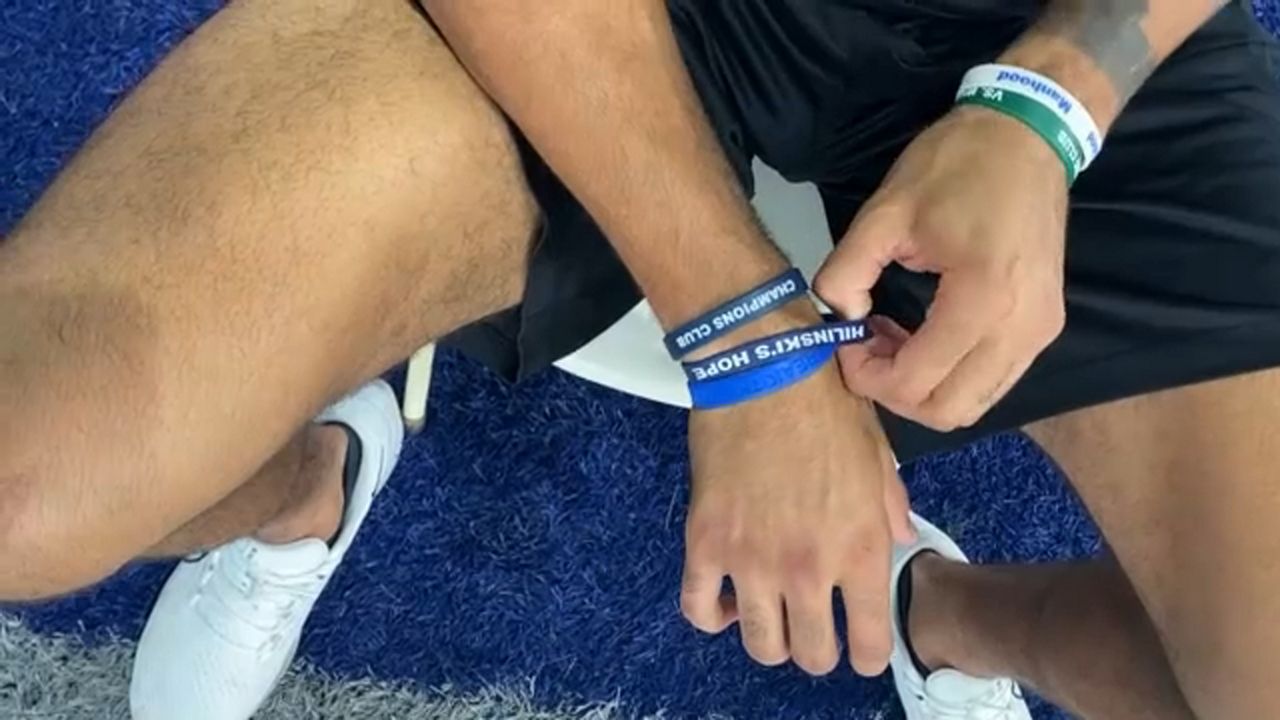This story does mention suicide. Suicide is preventable. The National Suicide Prevention Lifeline is 800-273-8255.
Mark Hilinski doesn’t have a specific, favorite memory of his son, Tyler.
Instead, it’s several spread out throughout their time together.
It’s all those small moments Mark remembers: picking him up after games, with Tyler’s gear thrown over his shoulder and a smile before he climbed into his father’s car.
Kym and Mark Hilinski started the Hilinski's Hope Foundation after their son, Tyler, who was the quarterback at Washington State University, died by suicide.
“We didn’t want to stop talking about Tyler,” Mark said. “We’re never going to get any new pictures. We’re never going to get a new text or email.”
Suicide is the second leading cause of death for people ages 10-34, according to the Centers for Disease Control and Prevention.
There are risk factors like mental health conditions or loss of relationships and warning signs like isolation or disruption in sleep, according to the American Foundation of Suicide Prevention.
But in Tyler’s case, Kym and Mark still don’t know the reason why.
A nine-year analysis of data from the National Collegiate Athletic Association shows that student-athletes have lower rates of suicide compared with similar age groups, but out of all the athletes, football players appear at greater risk.
Oct. 2-9 celebrated the second annual College Football Mental Health Awareness week hosted by the Hilinski’s Hope Foundation, which also acts as a hub for resources for student-athletes.
More than 50 colleges — including the University at Buffalo — participated in the week to raise awareness for student-athletes struggling with their mental health, break the stigma and bring resources to campus.
Kym and Mark wanted to keep Tyler’s memory alive but prevent this from happening to other student-athletes and their families.
The organization helps fund programs that help educate, advocate and eliminate the stigma surrounding mental health struggles among student-athletes.
This year, University at Buffalo wide receiver Dominic Johnson is one of the students who benefit from these programs.
“At an early age I was in an abusive household, and at one point my mom made the decision that it wasn’t safe for us to be in that house anymore,” Johnson said. “Throughout that time I dealt with a lot of struggles, anger issues and stuff like that and just questioning myself.”
Johnson's mother made sure that she and his five younger brothers went to family and individual counseling to help cope — something he is still thankful for to this day.
Throughout college, Johnson faced other hurdles like injuries, relationship problems, stress from academics and the pressure of being a leader both on the field and off.
The more than 18-month-long COVID-19 pandemic exacerbated mental health needs around the nation and on college campuses.
For student-athletes, the pandemic and necessary safety measures to stop the spread of the virus disrupted the structure of their routines, something the Hilinski's Hope Foundation found out during their UNIT3D podcast.
“Any of the sports, you’re up at 5, you’re working out until 7, you’re eating at 8, right? You go to practice until noon, shower, hustle to a couple classes and back for more meetings,” Mark said. “That whole schedule down to the 15-minute mark has already been set and you’re so use to doing that. When that disappeared, I think everyone lost an anchor a little bit.”
While there is some prejudice and stigma around mental health, Johnson has seen others become more open about their struggles during the pandemic.
“When you give someone a safe space to talk and they feel like they’re not going to get judged and they’re going to get supported, then you can speak out about it,” Johnson said.
While the week is over, Mark wants people to continue to learn about the resources and signs for mental health and continue the conversation around mental health for student-athletes.
“This is not about football, even during College Football Mental Health Week,” Mark said. “And we’re huge fans of college athletics. We know that the problem doesn’t only exist in football ... we’re using football as a vehicle to get the message and resources to all the student-athletes on campus. If you’re struggling, you deserve all the love and kindness you need to help you heal.”
Visit the Hilinski’s Hope Foundation website for more information about the initiative.



